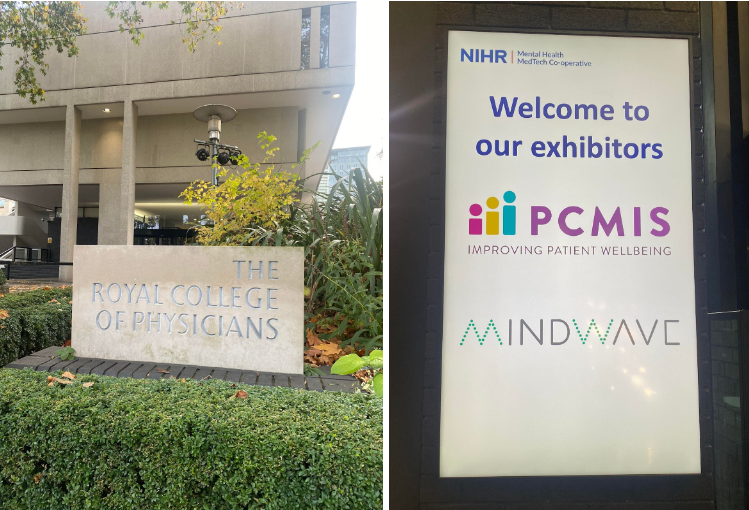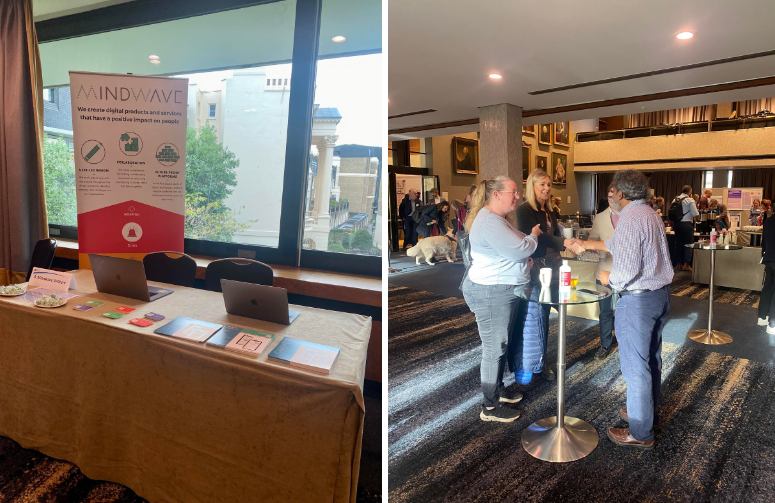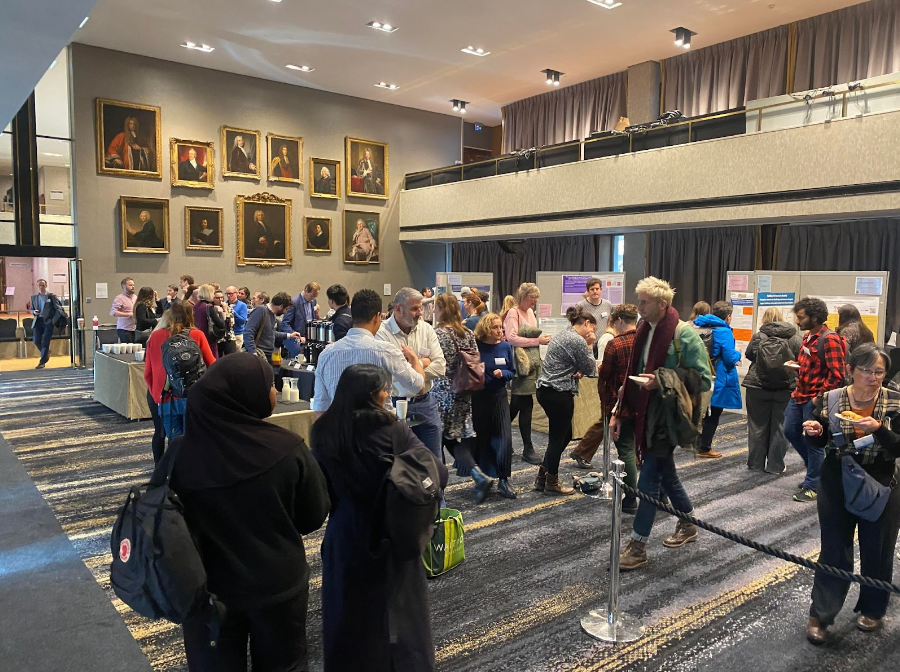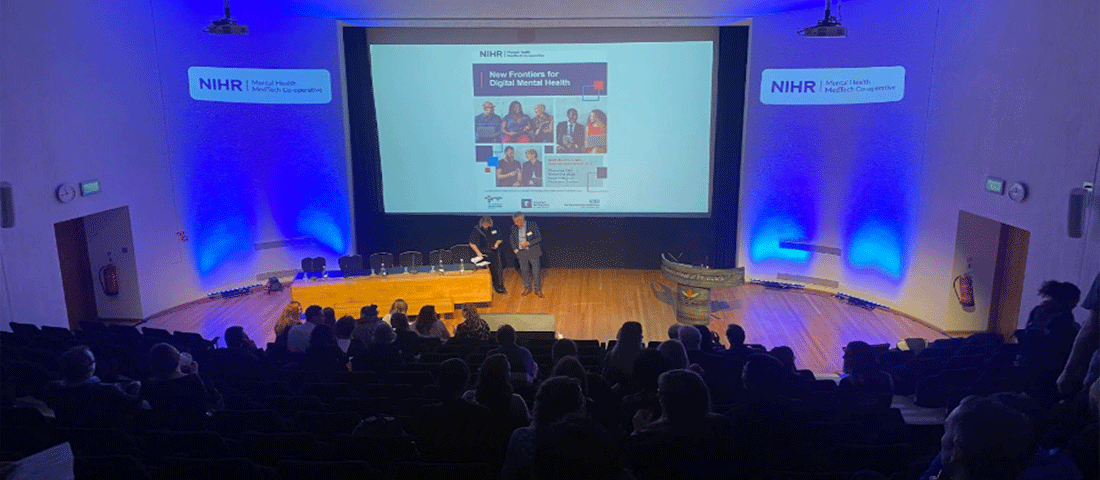MindTech invited us to the annual NIHR Mental Health Technology Symposium to present “Maia” to clinicians and academics from around the UK.

MindTech is a centre of excellence, funded by the National Institute for Health Research. They focus on the development, adoption and evaluation of new technologies for mental healthcare and dementia. MindTech work in partnership with healthcare professionals, patients, researchers and industry, to increase digital adoption in the NHS.

Our CEO, Kumar Jacob, has a long-standing relationship with MindTech collaborators and it was great to see colleagues reunited post-pandemic. It was exciting to discuss potential new ventures as part of our ambitious plans for a digital ecosystem. Our plans include providing patient-facing access to all of the interactions related to their health data. We also got to meet our colleagues from Xyla Therapeutics and BfB Labs to discuss more collaborative working and new opportunities.
MindTech believes that digital technology has the potential to transform mental healthcare by offering more accessible, efficient and flexible services. However, they recognise that it only has the power to improve lives if clear, evidence-based pathways can be forged for delivery, adoption and sustainability in real-world services. The 2022 symposium enabled delegates to engage in conversation around ways to address some of the key challenges that hamper implementation. Some highlights shared by thought leaders included:
- An online collection of mental health recovery narratives
- A digital card sorting task to understand and assess self-harm
- Socially Assistive Robots for young people with mental health difficulties
- Gaming for low mood
- Automated Virtual Reality Therapy for Psychosis

It was a hugely successful event, well attended by passionate health-tech experts and entrepreneurs. Before the speakers took to the stage at 10am, we had several conversations with individuals looking to widen patient access to health data. It was encouraging to witness a broad sense of intention and urgency by attendees. There was a myriad of different projects that had been discussed during the pandemic, now coming to life. Ideas were exchanged and plans were formulated; all to improve the digital products of others. We were lucky to be able to discuss ways to grow Maia, our patient engagement portal. Some of the discussions we had included:
- Gaming, gaze control and ADHD
- AI crisis care prediction tool for caseload management
- Analytics tools for improving patient outcomes in digitised clinical pathways
- A music therapy platform to aid anxiety, depression, Parkinson’s, Alzheimer’s and trauma
- Creating change in the Irish mental healthcare system for 12-25-year-olds
- Mood recognition technology, detected by facial expression for signposting treatment and resources
We are excited to follow up and begin the ambitious task of further expanding our ecosystem. We will be doing this by identifying opportunities to incorporate some of these innovative ideas and technologies into Maia PEP in collaboration with our “research partner groups”.
